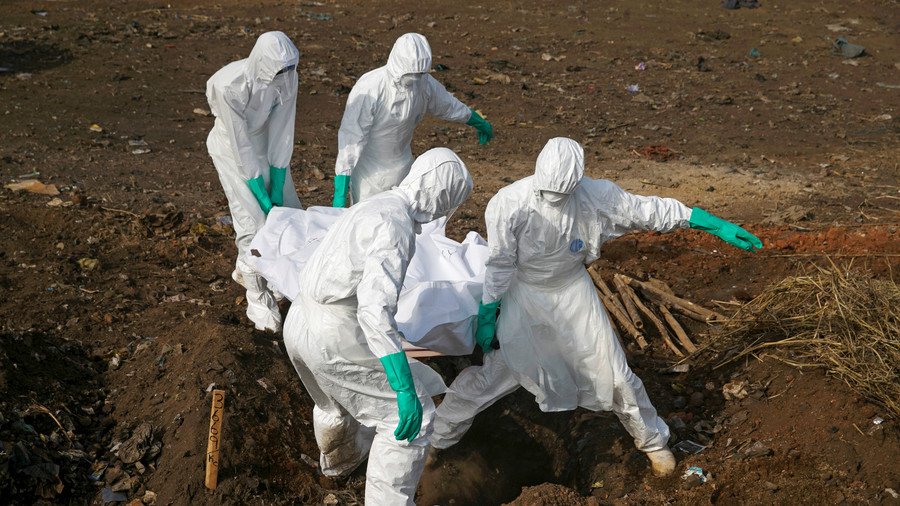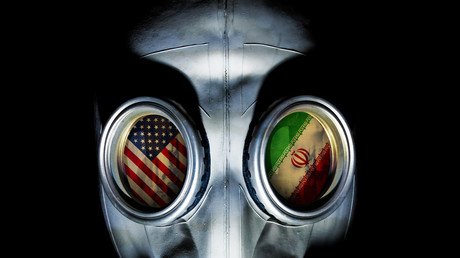WHO warns Congo’s Ebola outbreak is on ‘epidemiological knife’s edge’

The recent Ebola outbreak in the Democratic Republic of Congo is on an "epidemiological knife's edge,” amid growing concern that the deadly virus could spread to urban areas – or even other countries, the WHO has warned.
So far, 27 people in the DRC have died from an Ebola outbreak that was detected earlier this month. But health workers are discovering that identifying those who have been infected with the virus is only half the battle.
#EbolaDRC: At least some in the local people aren't cooperating with #Ebola investigators. From the Ministry of Health's May 23 update: "1 community death in Bikoro: body samples could not be taken because of the resistance of the community." https://t.co/2P5U17dexi
— Helen Branswell (@HelenBranswell) May 24, 2018
According to Reuters, two Ebola patients escaped from an isolation ward at a hospital in the port city of Mbandaka on Monday night. They then attended a prayer meeting with 50 other people, potentially exposing the entire group to the deadly virus. Both of the fugitive patients were vomiting, and one died after the prayer session ended, a medical coordinator for Medecins Sans Frontieres (Doctors Without Borders) told Reuters.
Noting that the number of reported cases has continued to rise steadily, the World Health Organization (WHO) warned on Wednesday that the Ebola outbreak has the “potential to expand.”
WHO Deputy Director Dr. Peter Salama said that the outbreak was now on an “epidemiological knife’s edge,” noting that “the few weeks will really tell if this outbreak is going to expand to urban areas or if we're going to be able to keep it under control.”
WHO also confirmed on Wednesday that it was working with nine countries neighboring the DRC in hopes of preventing the virus from spreading across borders.
The recent outbreak marks the DRC’s ninth battle with the virus since it was first identified in 1976.
Ebola: How bad could it be?
Ebola is nothing to sneeze at. The viral hemorrhagic fever has no proven cure and kills around 50 percent of infected people. So far, the World Health Organization has sent 7,540 experimental vaccines to the DRC. It will send another 8,000 doses, made by pharmaceutical firm Merck, over the next few days.
The #Ebola response efforts in the Democratic Republic of the Congo (#DRC) continue. A new Ebola treatment center run by @MSF near #Mbandaka -an affected area- will open later this week. WHO has deployed clinical experts to support optimized supportive care. pic.twitter.com/LcgG5Mqmus
— World Health Organization (WHO) (@WHO) May 24, 2018
The virus causes fever, vomiting and diarrhea, as well as external and internal bleeding as a result of damaged blood vessels. Death is often caused by multiple organ failure.
It is believed that fruit bats are natural hosts of the deadly virus. Ebola can be spread in a number of ways, including through the consumption of infected animal meat, contact with the blood or secretions of infected or dead animals, or by simply touching objects that have come into contact with the virus.
The disease has killed more than 12,800 people – mostly in Africa – since its discovery.
2014-16 Ebola outbreak redux?
The last major Ebola outbreak occurred between 2014-16. The initial case reportedly came from a small village in Guinea, with the virus quickly spreading to Guinea’s capital city of Conakry.
An inadequate response to the health crisis allowed the virus to cross over into neighboring Liberia and Sierra Leone. Over the duration of the epidemic, the deadly virus spread to seven more countries: Italy, Mali, Nigeria, Senegal, Spain, the United Kingdom and the United States.
The speed at which the virus spread was later attributed to its “unprecedented circulation” in “crowded urban areas.”
The WHO declared the health crisis officially over in March 2016. In total, 28,616 Ebola cases, resulting in 11,310 deaths, were reported in Guinea, Liberia, and Sierra Leone alone. An additional 36 cases and 15 deaths were reported outside those three countries.
During the 2014-16 epidemic, 11 people were treated for Ebola in the United States, with one person dying from the virus in October 2014.
Like this story? Share it with a friend!














